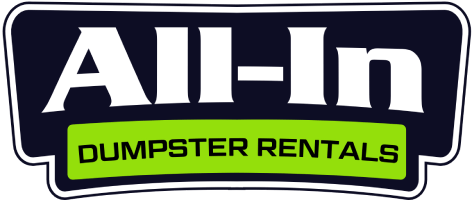The Unique Waste Management Challenges Facing Asheville Retailers
For retail businesses in Asheville and Western North Carolina, waste management presents unique challenges that differ significantly from those in more urban or flat landscapes. The combination of our mountain topography, seasonal tourist influxes, and local environmental regulations creates a waste disposal ecosystem that requires specialized knowledge and solutions.
Here in Asheville, retail businesses face particular challenges with limited space for waste containment, especially in our historic downtown district and in areas with steep property grades. During my years serving local businesses across Buncombe, Henderson, and Haywood counties, I’ve observed how proper commercial dumpster solutions can transform a retail operation’s efficiency and sustainability practices while reducing costs.
Understanding Retail Waste Profiles in Asheville
Retail businesses generate distinct waste streams that require tailored disposal solutions. Before selecting a commercial dumpster service for your Asheville retail operation, it’s important to understand your specific waste profile.
Most retail establishments in our area produce a combination of cardboard packaging, plastic film, merchandise packaging, office paper, and food waste (for those with café areas). Clothing retailers often have textile scraps, while electronics stores deal with packaging materials and potentially electronic waste requiring special handling.
The seasonal nature of Asheville’s retail landscape also affects waste volumes. During summer tourism peaks and the holiday shopping season, waste output can double or even triple for many local businesses. Having a flexible waste management solution becomes crucial during these fluctuating periods.
Choosing the Right Dumpster Size for Your Retail Operation
For retail businesses in Asheville, dumpster size selection is a balancing act between having adequate capacity and working within space constraints. Here’s a general guide based on retail business size and waste volume:
Small boutiques and specialty shops (under 1,500 sq ft) typically manage well with a 10-yard dumpster, which accommodates approximately 3-4 tons of waste. These smaller containers fit well in the tight spaces common in areas like West Asheville or Black Mountain’s commercial districts.
Mid-sized retailers (1,500-5,000 sq ft) often require 13-yard dumpsters, providing a good balance between capacity and footprint. This size works well for businesses with moderate cardboard volume and general retail waste.
Larger retail operations or those with high packaging waste volumes benefit from 15-yard dumpsters. These are ideal for businesses in shopping centers like Asheville Mall or Biltmore Park, where space constraints might be less restrictive.
Remember that mountain property characteristics like steep grades and limited access points can affect dumpster placement options. A site assessment from a local provider familiar with Western North Carolina’s unique topography is invaluable.
Waste Reduction Strategies for Asheville Retailers
Beyond selecting the right dumpster, implementing waste reduction strategies can significantly lower disposal costs while enhancing your business’s environmental profile – something increasingly important to Asheville’s eco-conscious consumers.
Cardboard handling represents one of the biggest opportunities for retail waste reduction. Breaking down boxes properly can reduce volume by up to 75%, maximizing dumpster space. Many Asheville retailers have implemented cardboard balers or compactors, which can pay for themselves within a year through reduced pickup frequency.
Plastic film recycling presents another opportunity. Stretch wrap, plastic bags, and air pillows can be collected separately and recycled through specialized programs, keeping these materials out of your main waste stream. Several local recycling partners in Buncombe County accept these materials when properly segregated.
Product packaging audits often reveal surprising waste reduction possibilities. Working with suppliers to minimize packaging or switch to recyclable materials can dramatically reduce waste volume. Several downtown Asheville retailers have successfully negotiated with vendors to take back packaging materials for reuse.
Strategic Dumpster Placement for Asheville Retail Locations
The placement of your commercial dumpster significantly impacts operational efficiency and customer experience. In Asheville’s retail districts, where space is at a premium and aesthetics matter, thoughtful dumpster placement becomes even more critical.
For street-facing businesses in areas like Lexington Avenue or Haywood Road, discreet dumpster placement away from customer traffic flows is essential. Loading dock areas or designated enclosures help maintain your storefront’s visual appeal while providing necessary access for staff and service vehicles.
In shopping centers with shared waste areas, coordinating with property management ensures adequate capacity and appropriate accessibility. Some larger retail centers in Asheville have implemented shared compactors to reduce overall footprint and costs for tenants.
Weather considerations also affect dumpster placement in our mountain climate. Positioning that accounts for runoff, snow accumulation, and wind patterns prevents weather-related complications. Proper drainage around dumpster areas prevents leachate issues during heavy rainfall periods, which are common in Western North Carolina.
Cost Management for Retail Dumpster Services
Waste disposal represents a significant operational cost for Asheville retailers, but several strategies can help optimize this expense. Understanding the cost structure helps businesses make informed decisions about their waste management approach.
Pickup frequency often presents the greatest opportunity for cost savings. Many retailers default to more frequent service than necessary, particularly during slower seasons. Implementing a seasonal adjustment schedule for pickup frequency can yield substantial savings during off-peak periods.
Waste audits reveal valuable insights about disposal patterns and opportunities for improvement. By analyzing what’s going into your dumpster, you can identify recycling opportunities that reduce landfill-bound waste and potentially qualify for lower-cost disposal options.
Contract terms vary significantly among waste haulers serving Asheville. Some local providers offer more flexible arrangements without long-term commitments, which can benefit seasonal businesses or those with changing needs. Monthly service agreements give retailers greater flexibility to adjust as their waste profile evolves.
Collaborative Waste Solutions for Retail Districts
In Asheville’s retail corridors and shopping districts, collaborative waste management approaches often yield better results than individual solutions. Several successful models have emerged across the area.
Shared compactor programs have proven effective in areas like Biltmore Village and River Arts District, where multiple businesses contribute to a single, high-capacity compactor. This approach reduces the overall footprint dedicated to waste handling while cutting costs for individual participants.
Business improvement districts sometimes coordinate waste services for member businesses, leveraging collective bargaining power to secure better rates and more tailored service. Downtown Asheville’s business association has successfully implemented such programs.
Coordinated pickup schedules among neighboring businesses can reduce truck traffic and associated disruptions. When multiple retailers on the same block schedule pickups for the same days, the overall impact on customer access and street congestion is minimized.
Seasonal Considerations for Asheville Retail Waste Management
Asheville’s distinct tourism seasons significantly impact retail waste volumes, requiring adaptive management approaches. Planning for these fluctuations helps maintain cost-effective waste handling year-round.
Summer tourist season typically generates peak waste volumes for most retail operations in the area. From May through October, many businesses benefit from increased service frequency or temporary capacity additions. Scheduling these adjustments in advance ensures availability during these high-demand periods.
Holiday shopping periods create intense waste peaks, particularly with packaging materials. Temporary cardboard-only dumpsters can help manage this specific waste stream during November and December, preventing overflow of general waste containers.
Winter slowdowns present opportunities to reduce service and costs. Many Asheville retailers scale back to minimal service during January and February, then gradually increase as spring tourism begins. A local waste partner familiar with these seasonal patterns can help develop an optimal schedule.
Regulatory Compliance for Retail Waste Disposal
Asheville and Buncombe County have specific waste regulations that retailers must navigate. Understanding these requirements helps avoid compliance issues and associated penalties.
Certain waste types face disposal restrictions or require special handling. Electronics, batteries, fluorescent bulbs, and some cleaning products used in retail operations can’t be placed in standard dumpsters. Local ordinances require separate handling for these materials, with several collection options available throughout the county.
Enclosure requirements vary by location within the city and county. Downtown Asheville has stringent requirements for screening waste containers from public view, while other areas may have more flexible guidelines. Checking current regulations before installing dumpster enclosures prevents costly modifications later.
Food waste regulations affect retailers with café areas or food sections. Asheville’s composting initiatives encourage or sometimes require food waste diversion from landfills. Several local composting services now cater specifically to businesses with food waste streams.
Working with a Local Waste Partner
The advantages of partnering with a local waste management provider extend far beyond simple pickup service. A truly local partner brings valuable regional knowledge that enhances your waste management program.
Local knowledge of Asheville’s unique geography, weather patterns, and access challenges ensures reliable service even in difficult conditions. National waste companies often struggle with our mountain roads, especially during winter weather events or on properties with challenging grades.
Responsiveness to seasonal business fluctuations comes more naturally to local providers who understand the rhythm of Asheville’s retail economy. The ability to quickly adjust service levels without navigating corporate approval chains provides valuable flexibility.
Community connections facilitate better problem-solving when unusual situations arise. Whether you need an emergency pickup before a major event or assistance with a special disposal project, local relationships translate to more personalized service.
The Future of Retail Waste Management in Asheville
Looking ahead, several emerging trends and technologies are reshaping waste management for Asheville retailers. Staying informed about these developments helps businesses remain at the forefront of efficient and sustainable practices.
Smart dumpster technology, featuring fill-level sensors and optimized pickup scheduling, is beginning to appear in the Asheville market. These systems adjust pickup frequency based on actual need rather than fixed schedules, reducing unnecessary service visits and associated costs.
Expanded recycling markets are creating new opportunities for waste diversion. Materials that previously required landfill disposal increasingly find second lives through innovative recycling processes, many developed by local entrepreneurs in Western North Carolina’s growing circular economy sector.
Zero-waste retail operations represent an aspirational goal for some Asheville businesses, particularly those catering to environmentally conscious consumers. While complete elimination of waste remains challenging, significant progress toward minimal landfill impact is achievable through thoughtful planning and operational adjustments.
Making Your Retail Waste Management Decision
When evaluating commercial dumpster solutions for your Asheville retail business, consider these key factors to make an informed decision:
Conduct a thorough waste audit to understand your specific waste profile, volumes, and patterns. This baseline information guides all subsequent decisions about container size, pickup frequency, and potential diversion opportunities.
Evaluate space constraints realistically, considering not just the dumpster footprint but also access requirements for both staff and service vehicles. In Asheville’s often tight commercial spaces, this assessment prevents operational headaches later.
Prioritize flexibility in service arrangements, especially if your business experiences seasonal fluctuations. The ability to adjust service levels without penalties provides valuable adaptability in our tourism-influenced economy.
For Asheville’s retail community, effective waste management extends beyond mere disposal – it reflects your business values, affects operational efficiency, and impacts your bottom line. A thoughtfully developed approach, implemented with a knowledgeable local partner, transforms this necessary expense into a strategic advantage.

